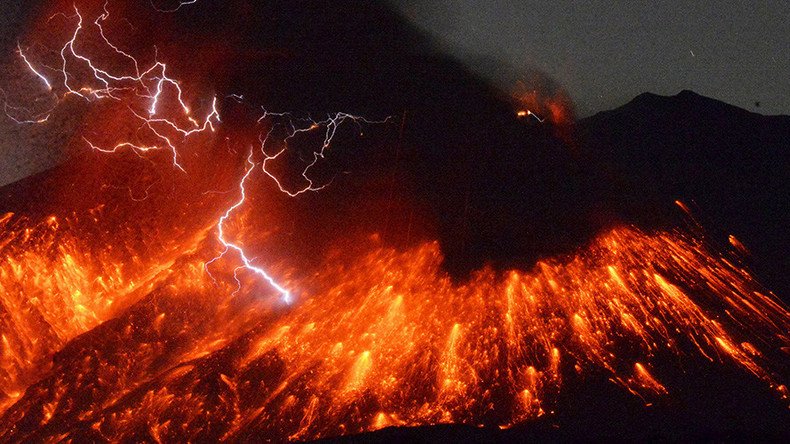6th mass extinction event could happen by 2100 – study

Over the past 540 million years Earth has suffered five mass extinction events, the worst of which wiped out more than 9 per cent of marine life on the planet. A new study has suggested that the next such catastrophe might not be too far away.
Massachusetts Institute of Technology (MIT) geophysicist and mathematician, Daniel Rothman has been busy studying previous mass extinctions. He reckons the next one might be a mere 83 years away.
The previous five catastrophic events each unfolded over millions of years and involved the natural cycle of carbon through the oceans and atmosphere being disturbed, resulting, in some cases, the death of almost all life on Earth.
The award-winning mathematician identified two “thresholds of catastrophe” that, if exceeded, would upset the natural order of the cycle, leading to an unstable environment and eventually a mass extinction.
Doomsayers watch countdown to Sept 23 ‘Planet X’ event rubbished by #NASAhttps://t.co/IleY1XcKQz
— RT (@RT_com) September 19, 2017
The first relates to changes in the carbon cycle over a period of thousands or millions of years. A mass extinction will occur if the rate of change in the cycle occurs faster than global ecosystems can adapt.
The second pertains to the size or magnitude of the carbon flux over a shorter period, as has been the case over the last century.
Therein lies a problem, however, as Rothman says: “How can you really compare these great events in the geologic past, which occur over such vast timescales, to what's going on today, which is centuries at the longest?”
“So I sat down one summer day and tried to think about how one might go about this systematically.”
'We run out of space, the only places to go to are other worlds' - #Hawking on space colonization at #Starmus2017https://t.co/fvYMbsj8Bfpic.twitter.com/ZQlmTxPM4k
— RT (@RT_com) June 22, 2017
He set about searching through hundreds of geochemistry papers trying to find an answer, classifying the events as either long or short in duration. Throughout his studies, Rothman identified 31 instances over the past 542 million years in which a major change occurred in the carbon cycle.
Following this, he devised a mathematical formula to determine the total mass of carbon added to the oceans during each event, after which “it became evident that there was a characteristic rate of change that the system basically didn't like to go past.”
Rothman estimates this to be 310 gigatons. He thinks that given the rise of carbon dioxide over the last century, a sixth mass extinction could be on the way as estimates suggest that humans will add roughly 310 gigatons to the cycle by 2100.
READ MORE: ‘What the frack! We’re destroying all life, we have a huge problem’
“This is not saying that disaster occurs the next day,” Rothman said. “It’s saying that, if left unchecked, the carbon cycle would move into a realm which would be no longer stable, and would behave in a way that would be difficult to predict. In the geologic past, this type of behavior is associated with mass extinction.”
Rothman's paper was published Wednesday in the journal Science Advances.












